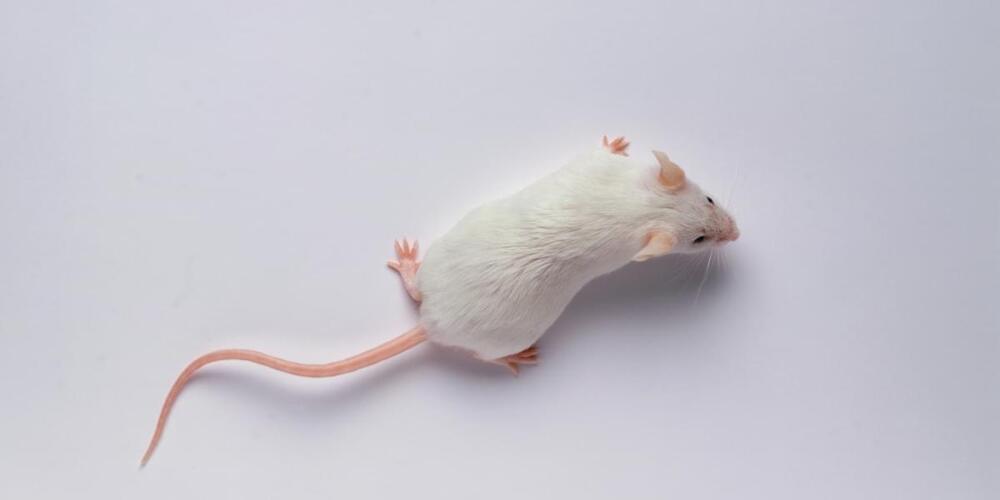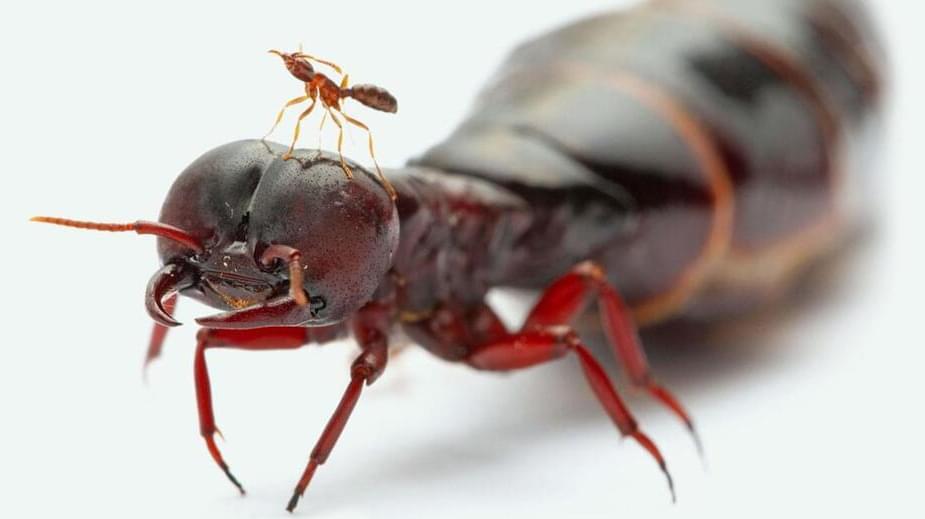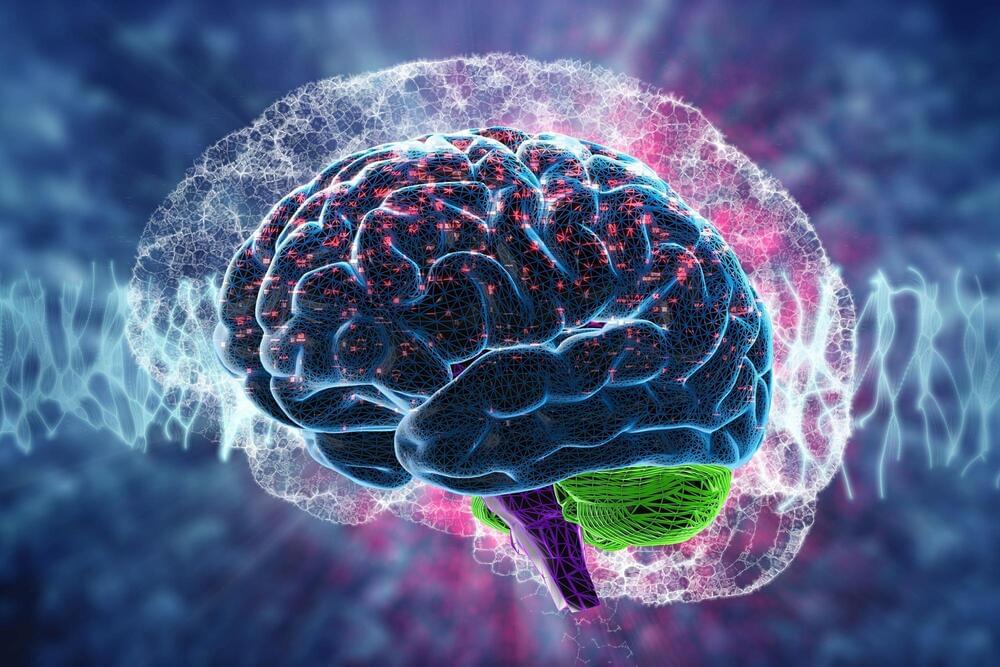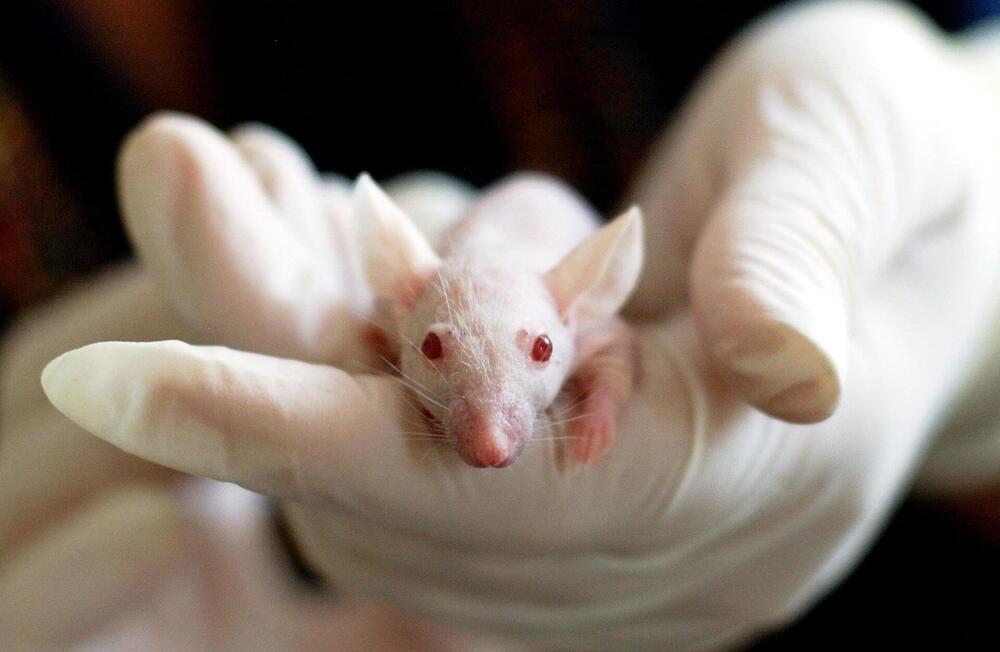This is a timeline of transhumanism, attempting to decribe significant events related to the movement. Topics directly related to transhumanism, including extropianism, life extension and eradication of suffering, are also described.
Category: life extension – Page 256


Short Reprogramming To Reverse Cellular Aging | Dr Vittorio Sebastiano Interview Clips
Dr Vittorio Sebastiano presents about aging and reprogramming and answers questions from audience in this clip. He specifies short Reprogramming does not impact cellular Identity but Impact cellular age and cellular health.
Dr. Vittorio Sebastiano is an Assistant Professor in the Department of Obstetrics and Gynecology at Stanford School of Medicine. His lab has established a new technology named ERA (Epigenetic Reprogramming of Aging), which repurposes the conceptual idea of reprogramming, with the goal to promote epigenetic rejuvenation of adult cells leaving their identity untouched. This new technology was patented and is being implemented by Turn Biotechnologies, of which Dr. Sebastiano is co-founder and Chair of the Scientific Advisory Board.
In 2009, Dr. Sebastiano completed a postdoctoral fellowship at the laboratory of Dr. Marius Wernig at Stanford University, where he implemented the newly discovered iPSC technology and was among the first to demonstrate that iPSCs can be efficiently derived, genetically modified, and implemented for cell therapy in genetic diseases (Sebastiano et al., 2014, Science Translational Medicine).
Dr. Sebastiano completed his undergraduate and graduate studies at the University of Pavia, Italy, where he studied murine germ cells and preimplantation development and where he pioneered cellular reprogramming by Somatic Cell Nuclear Transfer. He joined the Max Planck Institute for Molecular Biomedicine as a postdoctoral fellow under the mentorship of Dr. Hans Robert Schöler, where he continued his research on cellular reprograming, germ cells biology, and embryonic development.
DISCLAIMER: Please note that none of the information in this video constitutes health advice or should be substituted in lieu of professional guidance. The video content is purely for informational purposes.
#ReverseAging #reprogramming #immortal #VittorioSabastiano #Stanford #DavidSinclair #NMN 3sirtuin #NadBooster #Exercise #NAD #BeingHungry #NMN #Rejuvenate #Reprogramming #Mitochondria #ALA #Metformin #PQQ #CoQ10 #Carnitine #Antioxidant #LookYounger #NMN #Resveratrol #Quercetin #Fisetin #senolytics #OliveOil #Sirtuin #HIIT #aging #Lifespan #NMN #NR #Spermidine #Metformin #Berberine #ReverseAging #Epigenetic #OleicAcid #NMN #NAD #Sirtuins #Fasting #Longevity #RestoreYouth #Reprogramming #DavidSinclair #DrSinclairLab #Healthspan #Younger #antiaging #DrSinclair #NAD #longevity #Bioscience #Epigenome

Earlier Health Conditions Tied to Subsequent Dementia
Some health conditions associated with appeared early and consistently long before diagnosis, while others became significant much later, a cohort study suggested.
For people with a subsequent diagnosis of Alzheimer’s disease, the earliest and most consistent associations at all time points over a 15-year span included depression, erectile dysfunction, gait abnormalities, hearing loss, and nervous and musculoskeletal symptoms, reported Lori Beason-Held, PhD, of the National Institute on Aging in Baltimore, and co-authors.
For those eventually diagnosed with vascular, the earliest and most consistent associations across 13 years were an abnormal electrocardiogram (EKG), cardiac dysrhythmias, cerebrovascular disease, non-epithelial skin cancer, depression, and hearing loss, the researchers reported in Annals of Neurology.

Aubrey de Grey on LEVF and Robust Mouse Rejuvenation
Dr. Aubrey de Grey is a legend in the longevity field who has been steadfastly promoting the idea of life extension since well before it became mainstream. While with SENS Research Foundation, de Grey made significant contributions to geroscience, and at Longevity Summit Dublin last year, he announced the creation of his new brainchild, Longevity Escape Velocity Foundation (LEVF).
Now, the first major and long-awaited LEVF-funded project is being launched: Robust Mouse Rejuvenation (RMR). This is envisioned as a rolling research program aiming to increase both the mean and maximum lifespan of mice by at least 12 months with various combination therapies started late in life. For the first study, four therapies have been chosen: rapamycin, a senolytic, hematopoietic stem cell transplantation (HSCT), and telomerase expression. A groundbreaking experiment by any measure, RMR got us excited, and we reached out to Aubrey to discuss both RMR and LEVF in depth.
The following interview has Arkadi asking questions in bold and Aubrey de Grey answering in normal font.
Scientists reprogrammed mice’s genes to live longer, and it worked!
Time to reverse your age and restore youth.
Scientists at a San Diego-based biotech company Rejuvenate Bio claim to have increased the age of mice by reprogramming their genes. They believe their gene therapy actually works like a reverse aging technique that one day might be used for rejuvenating humans.
Their lifespan increased by about seven percent after the introduction of the genes.
National Science Foundation.
The researchers introduced three reprogramming genes into mice that had a remaining lifespan of about nine weeks. Interestingly, the mice survived for 18 weeks after the gene therapy. The tested mice were like 77-year-old humans before the gene therapy.

Brain Area Necessary for Fluid Intelligence Identified — Defining Feature of Human Cognition
𝐁𝐫𝐚𝐢𝐧 𝐀𝐫𝐞𝐚 𝐍𝐞𝐜𝐞𝐬𝐬𝐚𝐫𝐲 𝐟𝐨𝐫 𝐅𝐥𝐮𝐢𝐝 𝐈𝐧𝐭𝐞𝐥𝐥𝐢𝐠𝐞𝐧𝐜𝐞 𝐈𝐝𝐞𝐧𝐭𝐢𝐟𝐢𝐞𝐝 — 𝐃𝐞𝐟𝐢𝐧𝐢𝐧𝐠 𝐅𝐞𝐚𝐭𝐮𝐫𝐞 𝐨𝐟 𝐇𝐮𝐦𝐚𝐧 𝐂𝐨𝐠𝐧𝐢𝐭𝐢𝐨𝐧
𝘼 𝙩𝙚𝙖𝙢 𝙡𝙚𝙙 𝙗𝙮 𝙐𝙣𝙞𝙫𝙚𝙧𝙨𝙞𝙩𝙮 𝘾𝙤𝙡𝙡𝙚𝙜𝙚 𝙇𝙤𝙣𝙙𝙤𝙣 (𝙐𝘾𝙇) 𝙖𝙣𝙙 𝙐𝙣𝙞𝙫𝙚𝙧𝙨𝙞𝙩𝙮 𝘾𝙤𝙡𝙡𝙚𝙜𝙚 𝙇𝙤𝙣𝙙𝙤𝙣 𝙃𝙤𝙨𝙥𝙞𝙩𝙖𝙡𝙨 (𝙐𝘾𝙇𝙃) 𝙧𝙚𝙨𝙚𝙖𝙧𝙘𝙝𝙚𝙧𝙨 𝙝𝙖𝙨 𝙢𝙖𝙥𝙥𝙚𝙙 𝙩𝙝𝙚 𝙥𝙖𝙧𝙩𝙨 𝙤𝙛 𝙩𝙝𝙚 𝙗𝙧𝙖𝙞𝙣 𝙩𝙝𝙖𝙩 𝙨𝙪𝙥𝙥𝙤𝙧𝙩 𝙤𝙪𝙧 𝙖𝙗𝙞𝙡𝙞𝙩𝙮 𝙩𝙤 𝙨𝙤𝙡𝙫𝙚 𝙥𝙧𝙤𝙗𝙡𝙚𝙢𝙨 𝙬𝙞𝙩𝙝𝙤𝙪𝙩 𝙥𝙧𝙞𝙤𝙧 𝙚𝙭𝙥𝙚𝙧𝙞𝙚𝙣𝙘𝙚 — 𝙤𝙩𝙝𝙚𝙧𝙬𝙞𝙨𝙚 𝙠𝙣𝙤𝙬𝙣 𝙖𝙨 𝙛𝙡𝙪𝙞𝙙 𝙞𝙣𝙩𝙚𝙡𝙡𝙞𝙜𝙚𝙣𝙘𝙚. 𝙁𝙡𝙪𝙞𝙙 𝙞𝙣𝙩𝙚𝙡𝙡𝙞𝙜𝙚𝙣𝙘𝙚 𝙞𝙨 𝙖𝙧𝙜𝙪𝙖𝙗𝙡𝙮 𝙩𝙝𝙚 𝙙𝙚𝙛𝙞𝙣𝙞𝙣𝙜 𝙛𝙚𝙖𝙩𝙪𝙧𝙚 𝙤𝙛 𝙝𝙪𝙢𝙖𝙣 𝙘𝙤𝙜𝙣𝙞𝙩𝙞𝙤𝙣. 𝙄𝙩 𝙥𝙧𝙚𝙙𝙞𝙘𝙩𝙨 𝙚𝙙𝙪𝙘𝙖𝙩𝙞𝙤𝙣𝙖𝙡 𝙖𝙣𝙙 𝙥𝙧𝙤𝙛𝙚𝙨𝙨𝙞𝙤𝙣𝙖𝙡 𝙨𝙪𝙘𝙘𝙚𝙨𝙨, 𝙨𝙤𝙘𝙞𝙖𝙡 𝙢𝙤𝙗𝙞𝙡𝙞𝙩𝙮, 𝙝𝙚𝙖𝙡𝙩𝙝, 𝙖𝙣𝙙 𝙡𝙤𝙣𝙜𝙚𝙫𝙞𝙩𝙮. 𝙄𝙩 𝙖𝙡𝙨𝙤 𝙘𝙤𝙧𝙧𝙚𝙡𝙖𝙩𝙚𝙨 𝙬𝙞𝙩𝙝 𝙢𝙖𝙣𝙮 𝙘𝙤𝙜𝙣𝙞𝙩𝙞𝙫𝙚 𝙖𝙗𝙞𝙡𝙞𝙩𝙞𝙚𝙨 𝙨𝙪𝙘𝙝 𝙖𝙨 𝙢𝙚𝙢𝙤𝙧𝙮.
A team led by University College London (UCL) and University College London Hospitals (UCLH) researchers has mapped the parts of the brain that support our ability to solve problems without prior experience – otherwise known as fluid intelligence.
Fluid intelligence is arguably the defining feature of human cognition. It predicts educational and professional success, social mobility, health, and longevity. It also correlates with many cognitive abilities such as memory.
Fluid intelligence is thought to be a key feature involved in “active thinking” – a set of complex mental processes such as those involved in abstraction, judgment, attention, strategy generation, and inhibition. These skills can all be used in everyday activities – from organizing a dinner party to filling out a tax return.

Healthy aging and drinking water: Fascinating findings from a new study
Nearly half of people worldwide do not get the recommended daily total water intake, a new report indicates.
Yet drinking enough water may help to delay the aging process for many.
A recent study by the National Institutes of Health (NIH) published in eBioMedicine suggests as much — though there are caveats to know.

Mouse model shows obesity in early life promotes later inflammatory disease, even after weight loss
A team of researchers affiliated with multiple institutions in Canada has found that obesity in young mice can lead to inflammatory disease later in life even if the mouse is no longer overweight. In their paper published in the journal Science, the group describes studying early life obesity in test mice and the development of age-related macular degeneration. Kevin Mangum and Katherine Gallagher with the University of Michigan have published a Perspectives piece in the same journal issue outlining the research.
Age-related macular degeneration (AMD) in older people can lead to permanent blindness. Prior research has shown obesity plays a major role in its development. Other research has also shown that AMD is a neuroinflammatory condition. It is believed that the inflammation in the eyes is related to obesity, but the exact connection has not been identified. In this new effort, the researchers sought to find the connection by studying obesity and macular degeneration in mice.
The work involved feeding test mice a high-fat diet and studying the impact on adipose tissue macrophages (types of white blood cells that are part of the immune system). They found that obesity in mice led to epigenetic changes in the macrophages that resulted in an increase in expression of genes that incite an inflammatory response. They also found that the increased expression continued even after the test mice were put on a reduced diet that allowed them to return to their normal weight.